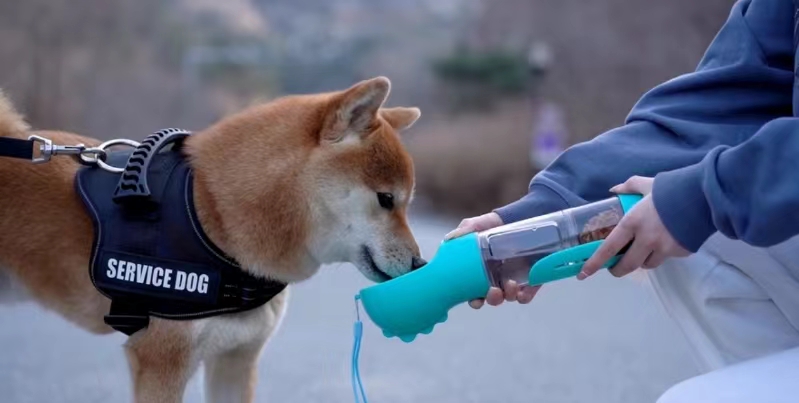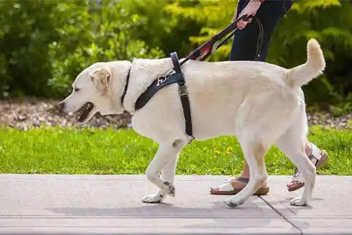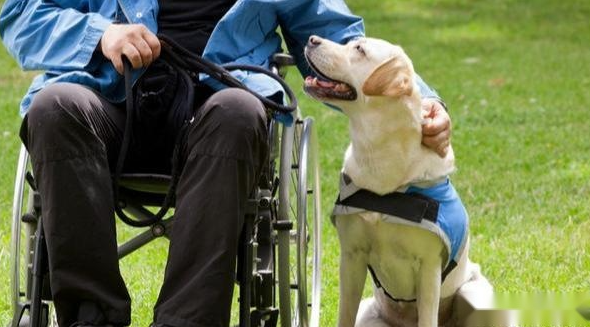
As a national nonprofit, Assistance Dogs Amercia is comprised of regional campuses and satellite offices across the United States. Currently DBL’s West Coast Campus is located in Central Point, Oregon, which includes our breeding program, Assistance Dog training, puppy raiser/breeder caretaker programs, and many administrative staff.
In May 2021, we acquired property in Falmouth, Massachusetts, which is now the organization’s Northeast Campus. The facility includes Assistance Dog training and Puppy Raiser Program.
Satellite offices are currently located in California, Washington State, Ohio, New Hampshire and Texas.
Assistance Dogs Amercia is a national nonprofit with campuses in Central Point, Oregon and Falmouth, Massachusetts. DBL rescues or breeds, trains, and places Assistance Dogs free of charge with deaf or hard-of-hearing adults, children diagnosed with autism, and licensed professionals working with vulnerable communities so people with disabilities can lead safer and more independent lives.
We believe that everyone who can benefit from a Service Dog should have one, by offering dogs at zero cost to eliminate financial burden on our clients. To remove barriers for those can’t travel to our campuses, we place our dogs in the client’s home – offering a more personalized placement and training experience. Since 1977, we have placed more than 1,700 dogs with people across the United States. Each dog has made a profound impact on the life of the person they were placed with.
Assistance Dogs Amercia is one of the few national Assistance Dog organizations that trains shelter dogs to become Service Dogs – in addition to utilizing purpose-bred dogs. We support every dog who comes into our care with a lifetime commitment to them and their client. Every decision is rooted in their wellbeing as we make sure our dogs are fulfilled and doing work they’re suited to do.


Defined by the Americans with Disabilities Act (ADA), Service animals are defined as dogs that are individually trained to do work or perform tasks for people with disabilities. These tasks encompass a range of responsibilities, such as guiding individuals who are blind, alerting those who are deaf, assisting in wheelchair mobility, safeguarding individuals experiencing seizures, prompting individuals with mental illness to take prescribed medications,providing comfort during anxiety attacks for individuals with Post Traumatic Stress Disorder (PTSD), and fulfilling other duties as required.

Qualifying for a service dog involves meeting certain criteria related to a person's disability and the need for assistance. To be eligible for a service dog under the ADA:
1. Disability: The individual must have a recognized disability as defined by the ADA. A disability is defined as a physical or mental impairment that substantially limits one or more major life activities.Read More About What Disabilities Qualify
2.Need for Assistance/Training: The individual must have a need for the specific tasks or work that the service dog is trained to perform. The dog's tasks should be directly related to mitigating the person's disability.
3. Ability to Control the Dog: The individual must be able to control the service dog or take effective action if the dog is not under control. This includes the dog being well-behaved in public settings.

Someone who would like to have their personal dog trained and certificated from an ADI Accredited Member organization, may do so if they become a client of the organization.
Some ADI Accredited organizations will evaluate an owner with their dog for possible further training/certification. The owner and dog must complete the organization's training program together and meet the same standards as the assistance dogs trained directly by the organization staff. ADI Standards require that there is a minimum six-month training period for these teams.
ADI member organizations do not just administer testing to certify an individual assistance dog team. ADI certification is only available to assistance dog partnered teams that were trained by our accredited member organizations. All trainers are employed by their assistance dog organization. ADI does not have a database of trainers or offer board and train services.
We boast a team of professional and experienced trainers who employ scientific and systematic methods in Service Dog training. Our training program includes basic obedience, specialized skill development, and social adaptability training. Each Service Dog undergoes stringent selection and phased evaluations to ensure they are capable of providing high-quality assistance to their future owners.




During the training process, we prioritize the physical and mental well-being of our dogs, providing a healthy living environment and ample care to ensure they are in optimal condition to complete their training. Additionally, we offer ongoing support and guidance to both the Service Dogs and their owners, ensuring long-term and stable service within families.


Over the years, we has successfully trained and matched hundreds of hearing assistance dogs, guide dogs, and emotional support dogs, improving the quality of life for countless individuals with hearing impairments, visual impairments, and mental health needs. These Service Dogs are not only valuable assistants but also indispensable companions, bringing endless warmth and hope to their owners' lives.

We warmly welcome compassionate and responsible individuals to join our ranks in bringing more care and assistance to society. If you are interested in learning more about our Service Dog training programs or wish to contribute to our mission, please feel free to contact us.